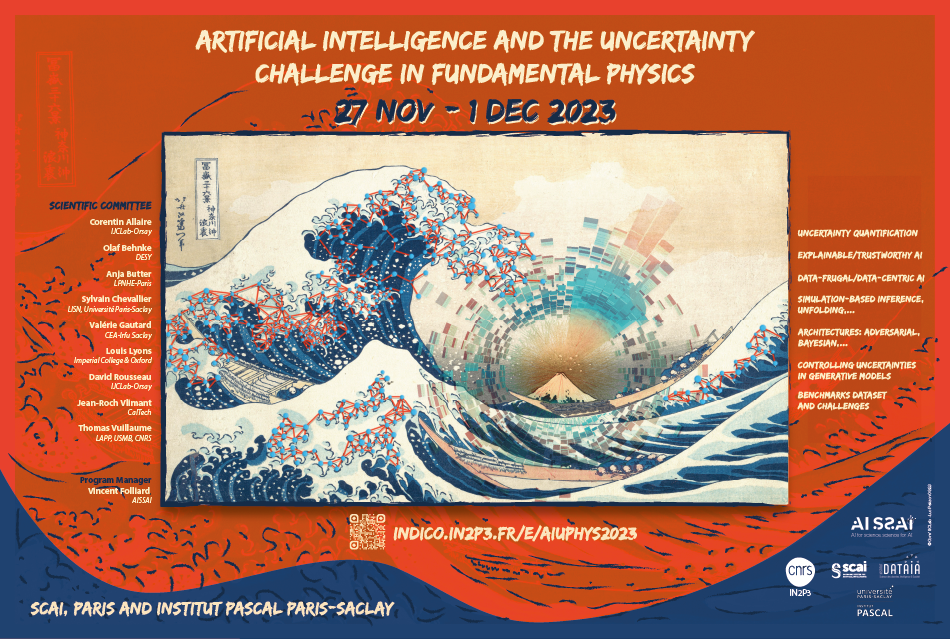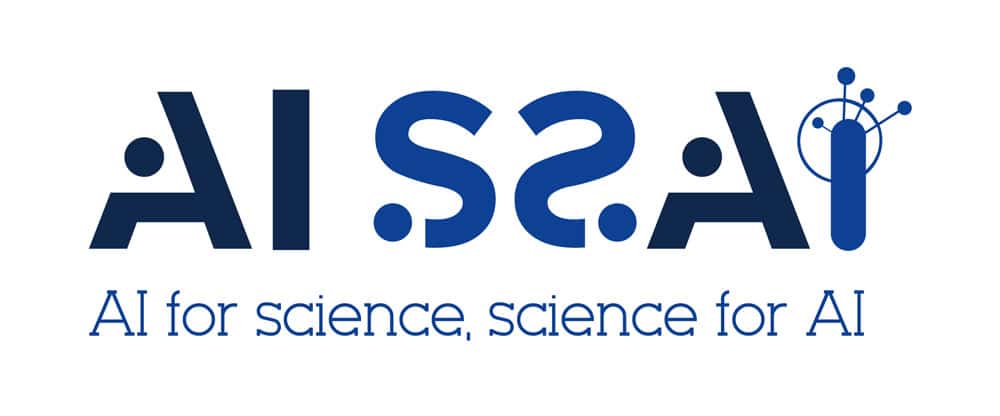The workshop is organised by CNRS AISSAI and CNRS IN2P3.


The integration of Artificial Intelligence (AI) into the realm of fundamental science is witnessing an unprecedented surge. However, there are specific challenges to be overcome:
- any measurement or prediction has to be provided with a precise confidence interval
- measurements rely on numerous inputs, each with inherent uncertainties and potential inter-correlations
- the trust in the measurement has to be communicated to peers
- an experiment complexity is between the breakout game and autonomous car: detailed, expensive, imperfect simulators exist
- each experimental device is a complex unique device, producing semi-structured data
- expensive data in the petabytes range
These challenges have been overcome in the past for extraordinarily complex measurements where the role of AI was not major (e.g. Higgs boson or gravitational wave discoveries). Also, Fundamental Science has decades-old big data culture.
This workshop aims to bring together experts from Fundamental Science, Computer Science and Statistics to exchange around the theme of Uncertainties, which has been broken down into the following themes:
- Monday PM : Opening session, Uncertainty Quantification, uncertainty prediction
- Tuesday AM : Explainable AI, trustworthy AI
- end of Tues AM, Tuesday PM : Simulation-Based Inference
- Wednesday AM : Data frugal approaches, Data-centric AI ; Benchmarks dataset and challenges
- Wednesday PM : Fair Universe hackathon
- Thu AM Unfolding (or de-biasing, de-blurring)
- End of Thu AM, Thu PM Controlling uncertainties in generative models
- Fri AM Architectures (Adversarial, Bayesian, ... )
- Fri PM Closing session
Each theme will see introductory talks by leading experts, followed by contributed talks.
Confirmed speakers list includes : Luca Biferale (U Roma 2), Mathias Backes (Kirchhof Institute), Sebastian Bieringer (U Hambourg), Jérôme Bobin (CEA-Saclay), Vincent Chabridon (EDF), Yuan Tuan Chou (U Washington), Vince Croft (NIKHEF-Amsterdam), Tommaso Dorigo (U Padova), Eva Govorkova (MIT), Marylou Gabrié (Ecole Polytechnique), Julien Girard-Satabin (CEA), Nathan Huetsch (U Heidelberg), Eiji Kawasaki (CEA), Gregor Kasiezcka (U Hamburg), Sabine Kraml (LPSC-Grenoble), Mikael Kuusela (Carnegie Mellon), Alessandro Leite (LISN), Gilles Louppe (U Liège), Mark Neubauer (U Illinois), Harrison Prosper (Florida State U), Radi Radev (CERN), Pedro Rodrigues (INRIA-Grenoble), Ozgur Sahin (CEA-Saclay), Simone Scardapane (U Roma), Sofia Schweitzer (U Heidelberg), Laurens Sluyterman (U Radboud), Gaël Varoquaux (INRIA-Saclay), Emmanuel Vazquez (L2S-Saclay), Wouter Verkerke (U Amsterdam), Gordon Watts (U Washington), Christoph Weniger (U Amsterdam), Philip Windischhofer (U Chicago), Burak Yelmen (U Tartu)
and most of the Fair Universe team : Yuan-Tang Chou (University of Washington), Wahid Bhimji (NERSC-Berkeley), Ragansu Chakkappai (IJCLab-Orsay), Yuan-Tang Chou (University of Washington), Sascha Diefenbacher (LBNL-Berkeley), Steven Farrell (NERSC-Berkeley), Elham Khoda (U Washington), David Rousseau (IJClab-Orsay), Ihsan Ullah (ChaLearn)
Also a special half-day hackathon on the Fair-Universe prototype challenge on Wednesday afternoon. The goal? Craft ML algorithms that can derive measurements with uncertainties from simulated LHC proton collisions, ensuring robustness against input uncertainties.
Registration and call for contribution
Registration is free (but mandatory). Registration for on-site participation (including monday cocktail and thursday workshop dinner) remains open until the last few available slots are distributed.
Remote full-time or part-time participation will be possible, although the focus will be on-site. The registration form allows to specify on-site participation with some granularity. The zoom link will be distributed to participants only.
The call for contributions is closed. Talks are expected to be given in person, with few exceptions.
Location
The workshop will take place from Monday 2PM till Tuesday evening in Paris at SCAI, Paris (on Jussieu campus) and Wednesday, Thursday, Friday 5PM at Institut Pascal Université Paris-Saclay.
And finally
A companion anomaly detection workshop will take place in Clermont-Ferrand 4-7th March 2024
All slides and recordings are available in the detailed agenda (Timetable). For recordings, we advise to right click and save, rather than play directly.
